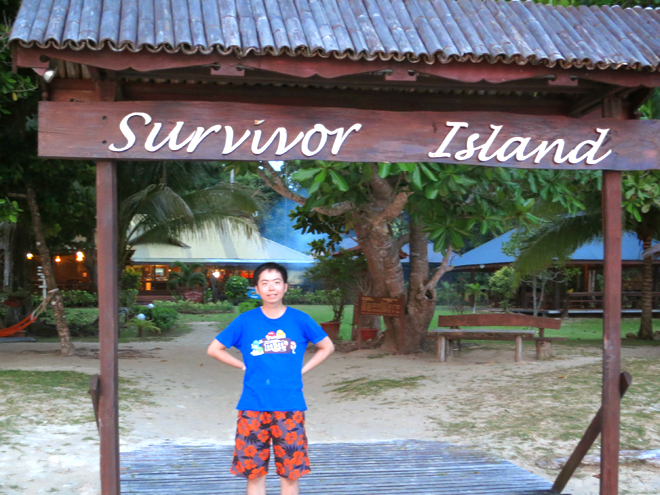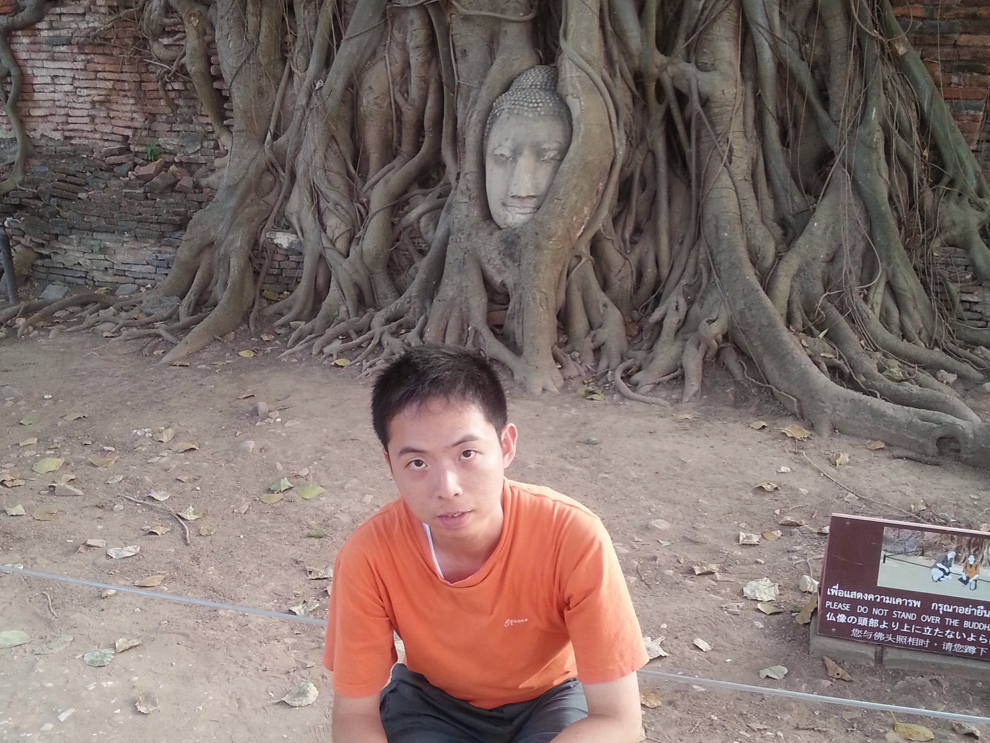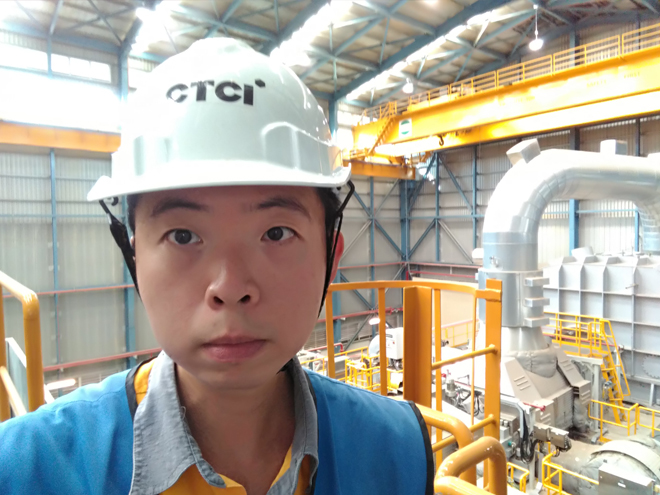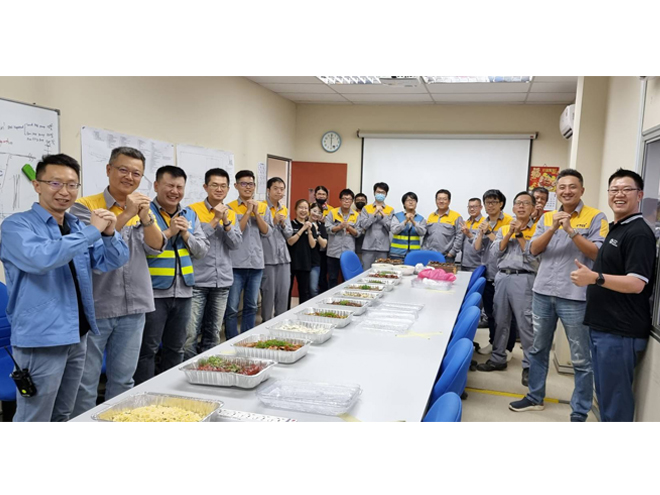CTCI Family
CTCI地球村
My Memorable Time in Southeast Asia
— Shen-Yuan Kuo, Electrical Engineer, Electrical Engineering Dept., CTCI Corp., Group Engineering Business

Visiting Mount Kinabalu National Park in Sabah, Malaysia in 2014.
Could you briefly tell us about yourself?
Hi, I am S. Y. Kuo. After joining Electrical Engineering Department in 2010, I worked as a field engineer for the Kimanis Project in Sabah, Malaysia in 2013 and TOP SPP Project in Thailand in 2015. Over the past two years, I have worked at the Track 4A Project site near Johor Bahru in Malaysia.
What made you join CTCI?
I joined CTCI because it offers an international working environment. Back in the college days, I had classmates who were exchange students from Mainland China’s Zhejiang University and Xi'an Jiaotong University. They sometimes inspired me with different ideas. I was glad to have classmates who came from different backgrounds. Then I had a chance to go to Japan and attend an academic conference on electrical engineering, where I presented my research. This conference broadened my views. When I finished my military service in 2008, I applied for jobs and got offers from several firms, including CTCI. At that time, I decided to work for another well-known company in Taiwan because it owned many huge factories in Mainland China. However, I felt disappointed at the working environment one year later. Therefore, I applied for CTCI again. I feel meaningful working at CTCI after I started working for projects abroad. Regardless of nationality, religion, race, or company, everyone worked together and contributed to the projects for common interest, something that really touches me.
Could you give us some examples of the foreign culture and people that impress you during your stay (when being relocated)?
Firstly, I am impressed with traditional culture of Malaysian Chinese. Before going to Malaysia, I thought Malaysians speak Malay and a bit of English. The first time I met Malaysian Chinese, I was surprised that they speak Mandarin fluently. As I stayed longer in Malaysia, I learned that they not only speak Mandarin but also speak other Chinese dialects, such as Hokkien, Cantonese, and Hakka. I wondered how Malaysian Chinese were able to preserve their own language so well. They told me that they still speak their own dialects at home. More importantly, Malaysia respects all languages. There are elective Mandarin courses available in elementary and high schools. Another example that I find impressive is the Chinese New Year. I have been through five Chinese New Years during my stay in Malaysia. Malaysian Chinese still throw grand celebration by wearing red clothes, setting off fireworks at night, as well as decorating their house with spring couplets and lanterns. Their composers create new and fashionable celebration music every year, which is frequently played on TV and radio programs during this special period. In short, I admire their efforts in preserving cultural heritage. Secondly, I find that Taiwanese pop culture is well-received among many Malaysian Chinese, something that amazes me. For example, there are several TV channels which broadcast Taiwanese dramas, talk shows, or music videos. Malaysian Chinese are quite familiar with Taiwanese showbiz. When talking about tourism, some Malaysian Chinese I met have already been to Taiwan before. Some people also said that they plan to visit Taiwan in the future. Another example is that there are some restaurants and food stalls that serve classical Taiwanese foods, including beef noodles, braised pork rice, chicken pie, stinky tofu, and bubble tea. It is easy to get Taiwanese food in Malaysia. As far as I am concerned, life in Malaysia is quite similar to that in Taiwan. Later I found out that the relations between Malaysia and Taiwan are quite close in terms of education and commerce. In fact, Malaysians comprise the second largest group of overseas students studying in universities in Taiwan. Some of these alumni are very influential people, evident from the fact that several famous firms in Malaysia and Taiwan are founded by them. As the numerous projects CTCI contracted in Malaysia gradually come to a close, I believe that the relations between both sides will be further improved.


My greatest surprise is the Muslim culture. From my previous knowledge and what I read in many news reports, the Middle East is not a safe region. But Omani people are actually very polite, kind, and friendly. I met my best Omani friend, Abdullah, and he brought me into Arabic culture. “Habibi” means “My dear” in Arabic. Arabic people usually use it to say hello. However, do NOT say this to a person with opposite gender, as he or she may find it quite harassing and offensive. Most Omanis treat their friends sincerely. For instance, during the peak of the covid-19 pandemic, rumor had it that someone who looked similar to me in body size tripped outside the restaurant one noon. Soon I received many messages and phone calls from the Owner side and my Omani friends, who sent their care.
How do you get rid of work stress?
I usually get rid of work stress by tasting local street foods, which are cooked with a variety of spices— influenced by Chinese, Indian, and local cultures. When I was in Thailand, I liked to order “Pad Thai” (fried rice noodle). What’s special about the sour sauce of “Pad Thai” is that it contains tamarind, a spice rarely seen in Taiwan. Another Thai food I enjoy is green curry, which has small and round eggplants that can only be found in Thailand. During my stay in Malaysia over the past two years, I enjoy dishes such as “Nasi Lemak” (coconut milk rice), “Roti Canai” (Indian flat bread), “Teh Tarik” (pulled milk tea), and “Laksa” (spicy noodle soup). In summary, traditional food in Southeast Asia is a must-try.

The site of Track 4A Project, where I worked until March 2021.

CTCI staff celebrate Chinese New Year at Track 4A Project site office in 2021.
Could you share some interesting experience you had when working in CTCI?
I want to share two interesting experiences from my domestic business trips in Malaysia. My first trip involves a factory acceptance test with the owner in Kuala Lumpur during Ramadan— which is a one-month religious ritual that forbids eating during daytime. After finishing the test, I was so hungry and thirsty that I felt a little dizzy. Even experiencing this for just one day is too much for me. Upon returning to our site, I found most Muslim workers observed this rule. The workers who did hard laboring tasks drank a little water at most. I really admire Muslims that they can keep this way for a month, which, I guess, cannot be possible without their piety When I visited a cable factory in Terengganu during my second trip, I met a senior Taiwanese technician. He told me that, on the invitation from the Malaysian owner, he and his colleagues went there to assist operation of a cable factory because they had previously worked in a famous cable factory in Taiwan for many years. Just like me, he goes back home in Taiwan every two or three months. I was astonished to learn that, being the only Taiwanese in the factory, he had already worked there for more than five years! I could imagine the difficulties he must have been through. It takes a great deal of independence to overcome homesickness. We exchanged contact information and have kept in touch ever since.
